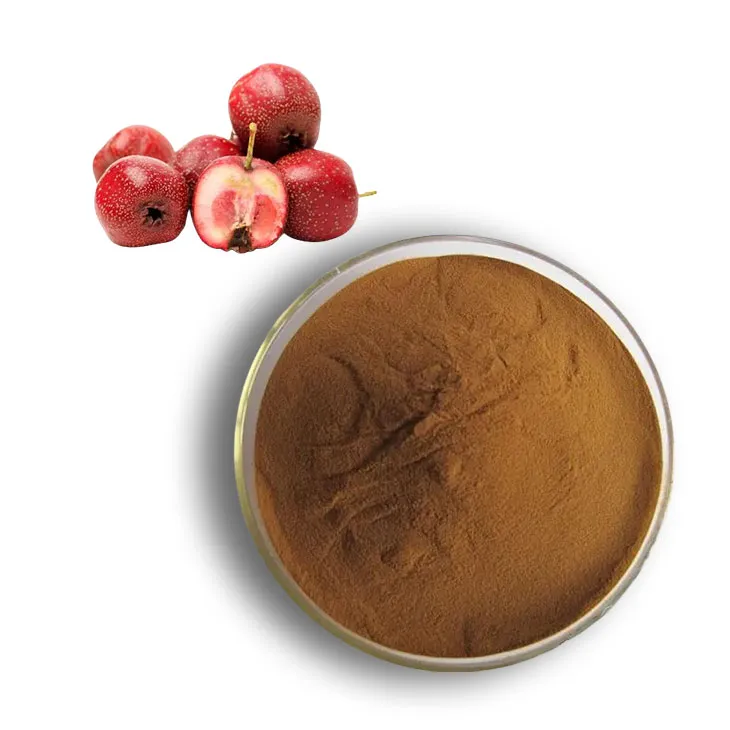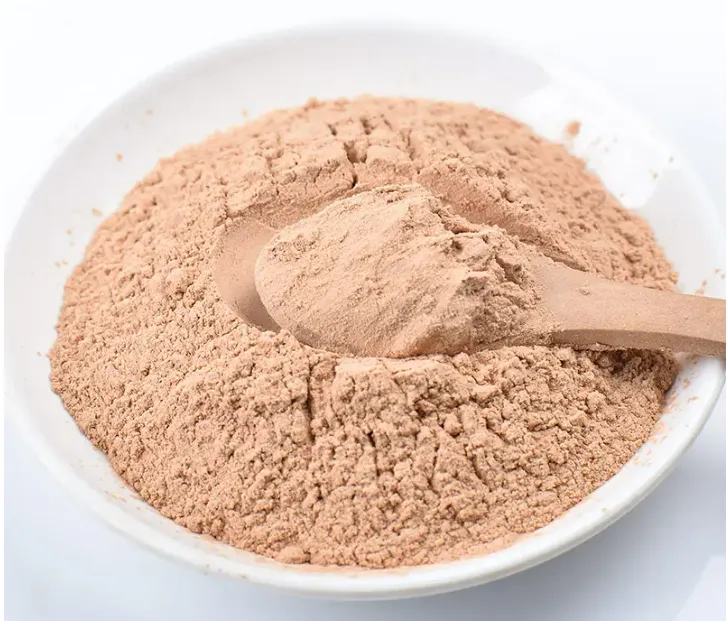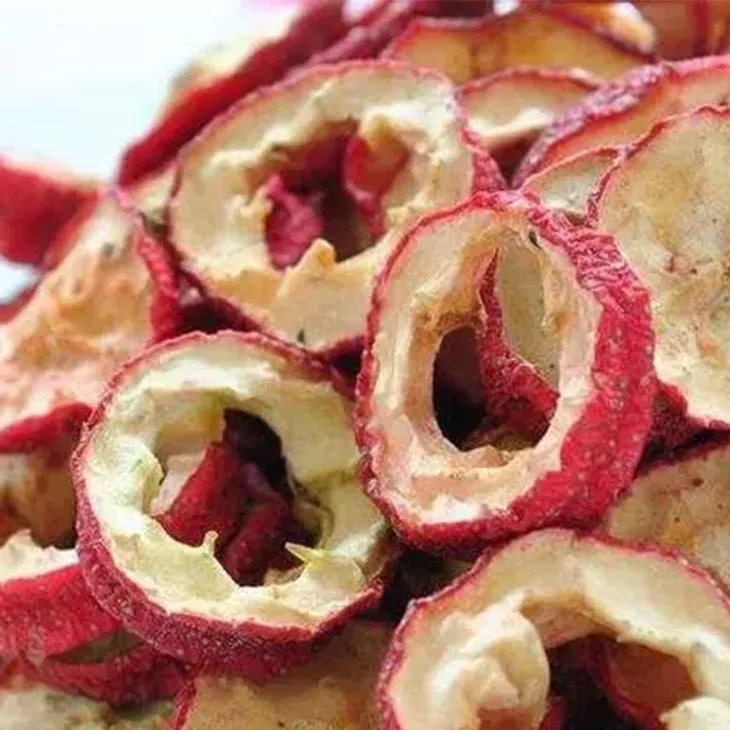- 0086-571-85302990
- sales@greenskybio.com
Purchase hawthorn extract in batches in an economical and efficient way.
2024-12-19

1. Introduction
Hawthorn Extract has been widely used in various industries, such as the food, pharmaceutical, and nutraceutical industries, due to its numerous health benefits. For businesses that require a large quantity of Hawthorn Extract, making a bulk purchase in an economical and efficient way is crucial. This article will explore different strategies to achieve this goal.

2. Defining Needs and Quality Criteria
2.1 Assessing Quantity Requirements
Before starting the purchasing process, it is essential to accurately determine the quantity of Hawthorn Extract needed. This requires a careful analysis of production forecasts, market demand, and inventory management. For example, a food company planning to launch a new line of hawthorn - flavored products may need to estimate the volume of products it expects to sell in the first year and calculate the corresponding amount of hawthorn extract required. By having a precise quantity in mind, the company can avoid over - or under - purchasing, which can lead to unnecessary costs or shortages.
2.2 Determining Quality Specifications
The quality of hawthorn extract can vary significantly depending on factors such as the source of the hawthorn berries, the extraction method, and the manufacturing process. Businesses should define clear quality criteria based on their intended use of the extract. For the pharmaceutical industry, strict quality standards are required, including purity, potency, and freedom from contaminants. In contrast, the food industry may focus more on factors such as taste, color, and aroma. Quality criteria may include specifications such as the content of active ingredients (e.g., flavonoids), the level of heavy metals (which should be within safe limits), and the microbiological quality. By establishing these quality requirements upfront, the purchasing process can be more targeted, and the risk of receiving sub - standard products can be minimized.

3. Seeking Trustworthy Suppliers
3.1 Researching Supplier Reputation
One of the first steps in finding a reliable supplier is to research their reputation. This can be done through various means, such as online reviews, industry forums, and referrals from other businesses. Online platforms like Alibaba, Global Sources, and Made - in - China can provide a wealth of information about suppliers, including their customer ratings, years of experience, and product range. Additionally, industry - specific associations and organizations may have lists of recommended suppliers. For example, in the nutraceutical industry, organizations such as the Council for Responsible Nutrition may have information on suppliers that adhere to good manufacturing practices.
3.2 Verifying Supplier Certifications
Suppliers should have relevant certifications to demonstrate their compliance with quality and safety standards. For hawthorn extract, certifications such as Good Manufacturing Practice (GMP), Hazard Analysis and Critical Control Points (HACCP), and Organic certifications (if applicable) are important. GMP ensures that the manufacturing process is carried out in a controlled and hygienic environment, while HACCP focuses on identifying and controlling potential hazards in the production process. Organic certifications are relevant for businesses that target the organic market segment. By verifying these certifications, buyers can have more confidence in the supplier's ability to provide high - quality hawthorn extract.
3.3 Visiting Supplier Facilities (if possible)
If feasible, visiting the supplier's facilities can provide valuable insights into their production capabilities and quality control measures. During the visit, buyers can observe the raw material storage, extraction process, and quality testing procedures. This hands - on inspection can help identify any potential issues or areas of concern that may not be apparent from written documentation or online research. For example, a buyer may notice that the supplier's raw material storage area is not properly ventilated, which could affect the quality of the hawthorn berries and, ultimately, the extract. However, visiting supplier facilities may not always be practical, especially for international purchases, in which case other forms of due diligence, such as third - party audits, can be considered.

4. Comparing Prices and Considering Overall Cost - Benefits
4.1 Obtaining Multiple Quotes
To ensure that you are getting a competitive price for hawthorn extract, it is advisable to obtain quotes from multiple suppliers. This can be done by sending out a detailed request for quotation (RFQ) that includes your quantity requirements, quality criteria, and delivery terms. Suppliers will then respond with their price offers, which can be compared side - by - side. When comparing prices, it is important to note that the lowest price may not always be the best option. Some suppliers may offer a lower price but compromise on quality or have hidden costs, such as high shipping fees or long - lead times.
4.2 Analyzing Cost - Components
When evaluating the cost of hawthorn extract, it is necessary to consider all cost - components, not just the unit price. These components may include:
- Raw material cost: The cost of the hawthorn berries used in the extraction process can vary depending on factors such as the origin, season, and quality of the berries.
- Extraction and manufacturing cost: This includes the cost of the extraction equipment, labor, and energy required to produce the extract.
- Packaging cost: The type of packaging used (e.g., bottles, pouches, drums) and the quantity per package can affect the overall packaging cost.
- Shipping and logistics cost: The distance between the supplier's location and the buyer's destination, the shipping method (e.g., air, sea, land), and any customs duties or import taxes are factors to consider in this category.
4.3 Considering Long - Term Relationships
While price is an important factor, it is also beneficial to consider building a long - term relationship with a supplier. A long - term relationship can lead to several advantages, such as more favorable pricing terms, priority in supply during shortages, and better cooperation in product development. For example, a supplier may be more willing to invest in research and development to improve the quality of the hawthorn extract if they have a long - term contract with a buyer. Additionally, a long - term relationship can reduce the time and effort required for supplier selection and negotiation in the future.
5. Contract Negotiation and Signing
5.1 Key Contract Terms
During contract negotiation, several key terms need to be carefully considered:
- Price and payment terms: Clearly define the unit price of the hawthorn extract, any price escalation clauses (e.g., based on changes in raw material costs), and the payment schedule (e.g., upfront payment, installment payments, or letter of credit).
- Quantity and delivery terms: Specify the quantity of the extract to be purchased, the delivery schedule (including the delivery date and frequency), and any tolerance levels for quantity variations.
- Quality control and inspection: Outline the procedures for quality control, such as sampling methods, testing laboratories, and acceptance criteria. Also, determine who will be responsible for the cost of quality inspection.
- Intellectual property rights: If there are any intellectual property issues related to the hawthorn extract (e.g., proprietary extraction methods or product formulations), clarify the rights and obligations of both parties.
- Liability and indemnification: Define the liability of each party in case of product defects, non - performance, or other issues. Include indemnification clauses to protect both parties from potential losses.
5.2 Negotiation Strategies
Effective negotiation strategies can help buyers secure more favorable terms. Some strategies include:
- Doing your homework: Before entering into negotiations, thoroughly research the market, the supplier's cost structure, and their competitors. This knowledge will give you an edge during the negotiation process.
- Highlighting your value as a customer: Emphasize your potential as a long - term customer, your market reach, and your ability to provide referrals. This can make the supplier more willing to offer better terms.
- Being flexible: While having your bottom line, be open to alternative solutions. For example, if the supplier cannot meet your desired price, explore options such as volume discounts, extended payment terms, or value - added services.
5.3 Finalizing and Signing the Contract
Once the negotiation is complete, it is important to carefully review the contract to ensure that all terms are accurately reflected. Any ambiguities or discrepancies should be resolved before signing. After signing the contract, both parties should keep a copy for their records and abide by the terms and conditions specified in the contract.
6. Conclusion
Purchasing hawthorn extract in bulk in an economical and efficient way requires a comprehensive approach that includes defining needs and quality criteria, seeking trustworthy suppliers, comparing prices and considering overall cost - benefits, and successfully negotiating and signing a contract. By following these strategies, businesses can ensure that they obtain high - quality hawthorn extract at a reasonable cost, which can contribute to their success in the market.
FAQ:
1. What are the key factors to consider when defining the needs for hawthorn extract?
When defining the needs for hawthorn extract, several key factors should be considered. Firstly, the intended use of the extract is crucial. For example, if it is for medicinal purposes, specific active compounds and their concentrations may be required. Secondly, the quantity needed over a certain period should be determined. This depends on factors such as production volume if it is for manufacturing products, or consumption rate if for personal use. Additionally, any specific quality requirements related to purity, absence of contaminants, and compliance with relevant regulations need to be factored in.
2. How can one find trustworthy suppliers of hawthorn extract?
To find trustworthy suppliers of hawthorn extract, start by conducting thorough research. Look for suppliers with a good reputation in the industry. This can be determined by checking online reviews, industry forums, and testimonials from other customers. Another way is to verify if the supplier has relevant certifications, such as Good Manufacturing Practice (GMP) certifications, which indicate that they follow strict quality control and manufacturing standards. It is also advisable to ask for samples before making a large - scale purchase. This allows you to test the quality of the product yourself. Additionally, consider the supplier's experience in the market. Suppliers with a long - standing presence are more likely to be reliable.
3. What aspects should be compared when comparing prices of hawthorn extract?
When comparing prices of hawthorn extract, several aspects should be considered. Firstly, the unit price per quantity (e.g., per kilogram or liter) is a basic factor. However, it's not the only one. You should also take into account the quality of the product at that price. A lower - priced product may seem attractive, but if it has lower purity or contains contaminants, it may not be a good deal in the long run. Shipping costs are another important aspect. Some suppliers may offer a lower product price but charge high shipping fees. Additionally, consider any potential discounts for bulk purchases, as well as the supplier's payment terms. A supplier offering more favorable payment terms may be more cost - effective overall.
4. How to calculate the overall cost - benefits when purchasing hawthorn extract?
Calculating the overall cost - benefits when purchasing hawthorn extract involves multiple steps. Firstly, determine the direct costs, which include the purchase price of the extract and any associated shipping and handling fees. Then, consider the indirect costs. For example, if the quality of the extract is lower, it may lead to additional costs in the production process (such as rework or product rejection). On the benefit side, consider the value the extract will bring. If it is used in a product, how much will the product sell for? How will the quality of the extract affect the product's marketability? By comparing the total costs with the expected benefits, you can calculate the overall cost - benefits.
5. What are the important points in contract negotiation for bulk purchase of hawthorn extract?
In contract negotiation for bulk purchase of hawthorn extract, several important points need to be considered. Firstly, clearly define the quantity, quality specifications, and delivery schedule in the contract. This ensures that both parties are on the same page regarding what is expected. Secondly, price and payment terms should be clearly stated. Include details such as whether there are any price escalation clauses, discounts for early payment, or installment options. Thirdly, liability and warranty terms are crucial. Determine who is responsible in case of product defects or non - compliance with quality standards. Also, consider including clauses for dispute resolution, such as arbitration or mediation, to handle any potential conflicts that may arise during the contract period.
Related literature
- The Hawthorn Extract Market: Trends and Opportunities"
- "Quality Control in Hawthorn Extract Production"
- "Economic Aspects of Botanical Extract Purchasing"
- ▶ Hesperidin
- ▶ citrus bioflavonoids
- ▶ plant extract
- ▶ lycopene
- ▶ Diosmin
- ▶ Grape seed extract
- ▶ Sea buckthorn Juice Powder
- ▶ Beetroot powder
- ▶ Hops Extract
- ▶ Artichoke Extract
- ▶ Reishi mushroom extract
- ▶ Astaxanthin
- ▶ Green Tea Extract
- ▶ Curcumin Extract
- ▶ Horse Chestnut Extract
- ▶ Other Problems
- ▶ Boswellia Serrata Extract
- ▶ Resveratrol Extract
- ▶ Marigold Extract
- ▶ Grape Leaf Extract
- ▶ blog3
- ▶ blog4
- ▶ blog5
-
Camu Camu Extract
2024-12-19
-
Red Wine Extract
2024-12-19
-
Curcumin
2024-12-19
-
Epimedium extract powder
2024-12-19
-
Natural grape seed extract
2024-12-19
-
Longan Extract
2024-12-19
-
Milk Thistle Extract
2024-12-19
-
Diosmin
2024-12-19
-
Black Pepper Extract
2024-12-19
-
Hericium erinaceus extract powder
2024-12-19





















